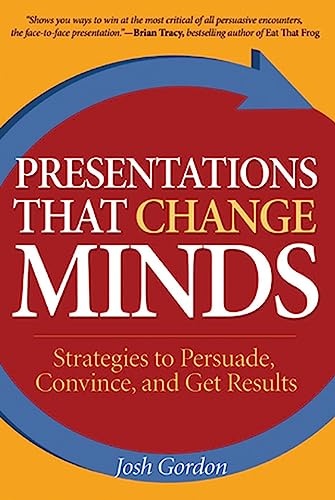Inside Our ADHD Minds: Strategies For Success And Well-being

Table of Contents
Understanding the ADHD Brain
Understanding the neurobiological differences within ADHD minds is crucial for developing effective coping strategies. Let's delve into the key challenges often faced by those with ADHD.
Executive Function Challenges
Executive functions, the cognitive skills that allow us to plan, organize, and manage our time effectively, are significantly impacted by ADHD. These challenges manifest in various ways:
- Procrastination: Difficulty initiating and completing tasks, often leading to missed deadlines and increased stress.
- Prioritization issues: Struggling to differentiate between urgent and important tasks, leading to inefficient workflow.
- Working memory deficits: Difficulty holding information in mind, impacting recall and overall cognitive performance.
- Time blindness: An impaired sense of time, making it difficult to estimate how long tasks will take.
These difficulties with ADHD executive function create significant hurdles in daily life, but with the right strategies, these challenges can be effectively managed. Understanding the specific challenges your ADHD brain faces is the first step to overcoming them.
Emotional Regulation and ADHD
The link between ADHD and emotional dysregulation is well-established. Individuals with ADHD often experience:
- Impulsivity: Acting without thinking, leading to regrettable decisions and strained relationships.
- Irritability: Increased frustration and anger, often triggered by minor setbacks or delays.
- Mood swings: Rapid shifts in mood, ranging from intense euphoria to deep sadness.
Managing these intense emotions is crucial for well-being. Effective strategies include:
- Mindfulness techniques: Practicing present moment awareness to reduce impulsivity and emotional reactivity.
- Deep breathing exercises: Calming the nervous system and promoting relaxation.
- Cognitive Behavioral Therapy (CBT): Learning to identify and challenge negative thought patterns that contribute to emotional dysregulation.
Recognizing the impact of ADHD and emotional regulation is key to developing effective coping mechanisms.
Practical Strategies for Success
Armed with a better understanding of the ADHD brain, let’s explore practical strategies to enhance success and productivity.
Time Management Techniques for ADHD Minds
Time management often feels like an insurmountable hurdle for individuals with ADHD. However, specific techniques can make a significant difference:
- Time blocking: Allocating specific time slots for different tasks in your schedule.
- The Pomodoro Technique: Working in focused bursts (e.g., 25 minutes) followed by short breaks.
- Utilizing timers and reminders: Setting alarms and using digital tools to stay on track.
- Breaking down large tasks: Dividing overwhelming projects into smaller, more manageable steps.
These ADHD time management strategies help create structure and predictability, reducing feelings of overwhelm and improving focus.
Organization and Productivity Hacks
Improving organization is key to boosting productivity for those with ADHD minds. Consider these approaches:
- Digital organization tools: Employing calendar apps, task managers, and note-taking apps to centralize information.
- Visual schedules: Creating visual representations of daily or weekly plans to improve clarity and reduce reliance on memory.
- Decluttering workspaces: Minimizing distractions and creating a calm, organized environment conducive to focus.
- Utilizing color-coding: Assigning colors to different tasks or categories for improved visual distinction and easier tracking.
These ADHD organization techniques provide structure and visual cues, which are particularly beneficial for those with ADHD.
Harnessing ADHD Strengths
While ADHD presents challenges, it also bestows unique strengths. Learning to harness these strengths is vital:
- Creativity: The ability to think outside the box and generate innovative ideas.
- Hyperfocus: The capacity for intense concentration on tasks that genuinely interest them.
- Out-of-the-box thinking: A unique perspective that can lead to breakthroughs and creative solutions.
By identifying and leveraging these ADHD strengths, individuals can excel in fields where creativity, innovative thinking, and intense focus are valued.
Supporting Your Well-being
Managing ADHD effectively involves prioritizing self-care and seeking support when needed.
The Importance of Self-Care for ADHD
Self-care isn't a luxury; it's a necessity for those with ADHD. Prioritize:
- Regular exercise: Physical activity improves mood, reduces stress, and enhances cognitive function.
- Healthy eating: Nourishing your body with balanced meals provides sustained energy and improves focus.
- Sufficient sleep: Adequate rest is essential for cognitive function, emotional regulation, and overall well-being.
- Stress management techniques: Incorporating relaxation techniques such as meditation, yoga, or spending time in nature.
These self-care practices for ADHD are vital in managing symptoms and improving overall mental and physical health.
Seeking Professional Support
Don't hesitate to seek professional help. A therapist, psychiatrist, or ADHD coach can provide:
- Diagnosis and assessment: Ensuring an accurate diagnosis and understanding of your specific needs.
- Therapy: Cognitive Behavioral Therapy (CBT) and other therapeutic approaches can help manage symptoms and improve coping skills.
- Medication management: A psychiatrist can assist with medication options to manage ADHD symptoms.
- Coaching: ADHD coaches provide personalized support and strategies to navigate daily challenges.
Conclusion
Navigating life with an ADHD mind requires understanding your unique strengths and challenges. By implementing the time management techniques, organization strategies, and self-care practices discussed, you can significantly improve your productivity, focus, and overall well-being. Remember to harness your ADHD strengths and seek professional support when needed. Managing your ADHD mind is a journey, not a destination. Take control, embrace your strengths, and start thriving. For more information on resources and support for ADHD, visit [insert relevant link here]. Start understanding your ADHD brain today and unlock your full potential.

Featured Posts
-
 Airdrie And Coatbridge 41 Club Renews Gibraltar Twin Club Partnership
May 13, 2025
Airdrie And Coatbridge 41 Club Renews Gibraltar Twin Club Partnership
May 13, 2025 -
 The Hobbit The Battle Of The Five Armies Exploring The Films Production
May 13, 2025
The Hobbit The Battle Of The Five Armies Exploring The Films Production
May 13, 2025 -
 Thunders Draft Position Unresolved Following Regular Season Conclusion
May 13, 2025
Thunders Draft Position Unresolved Following Regular Season Conclusion
May 13, 2025 -
 Ostapenko Upsets Sabalenka To Claim Stuttgart Open Title
May 13, 2025
Ostapenko Upsets Sabalenka To Claim Stuttgart Open Title
May 13, 2025 -
 Nhl Draft Lottery Islanders Win Sharks Get No 2
May 13, 2025
Nhl Draft Lottery Islanders Win Sharks Get No 2
May 13, 2025
Latest Posts
-
 Salman Khans Box Office Bomb A R2 Crore Disaster And Its Lasting Effects
May 13, 2025
Salman Khans Box Office Bomb A R2 Crore Disaster And Its Lasting Effects
May 13, 2025 -
 Bollywoods Biggest Loss Salman Khans R2 Crore Film And Its Consequences
May 13, 2025
Bollywoods Biggest Loss Salman Khans R2 Crore Film And Its Consequences
May 13, 2025 -
 Salman Khans Film A 4 7 Return On Investment What Went Wrong
May 13, 2025
Salman Khans Film A 4 7 Return On Investment What Went Wrong
May 13, 2025 -
 R2 Crore And Counting The Impact Of Salman Khans Biggest Box Office Failure
May 13, 2025
R2 Crore And Counting The Impact Of Salman Khans Biggest Box Office Failure
May 13, 2025 -
 Devon Sawa Hints At Final Destination 25th Anniversary Return
May 13, 2025
Devon Sawa Hints At Final Destination 25th Anniversary Return
May 13, 2025
